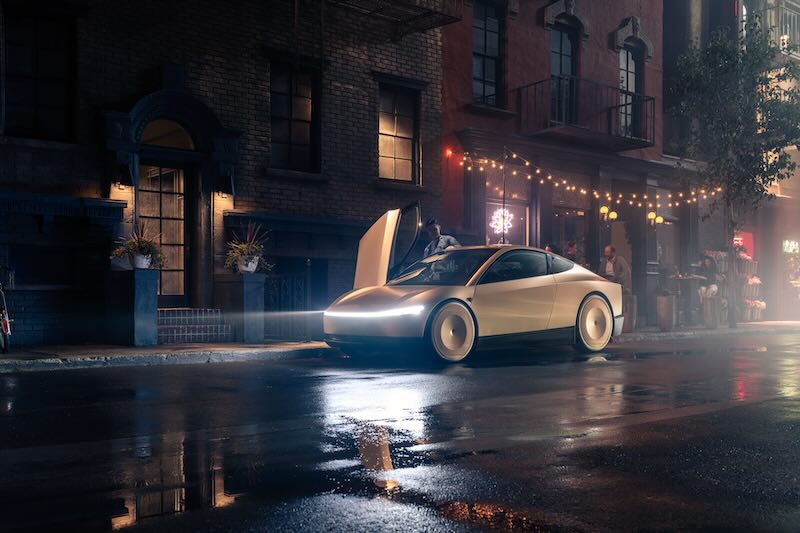Tesla has quietly begun real-world testing of its robotaxi service, confirming Wednesday on X that its “FSD Supervised ride-hailing service is live for an early set of employees in Austin & San Francisco Bay Area.” Internal pilot program marks a significant step toward Tesla’s planned public robotaxi rollout this summer.
According to Tesla’s announcement, the company has already completed over 1,500 trips and accumulated more than 15,000 miles of driving in its employee testing program. Rather than using the futuristic steering-wheel-free Cybercab concept unveiled last year, Tesla is deploying modified Model 3 sedans for this initial testing phase.
The test vehicles include a back-seat display that provides passengers with estimated arrival times, climate control access, music options, and an emergency stop button. Tesla has been careful to note that safety drivers are currently present in all vehicles, and the system—running on Full Self-Driving (Supervised)—does not yet offer full autonomy.
During Tesla’s Q1 earnings call this week, CEO Elon Musk reaffirmed that the Austin robotaxi service will launch publicly in June, starting with a small fleet of approximately 10-20 vehicles. Tesla has kept pricing details and other operational specifics confidential for now.
Elon has repeatedly stated that Tesla aims to eventually deploy a driver-free, “unsupervised” version of FSD, with Austin serving as the inaugural market. According to the CEO’s timeline, California and other markets should follow later this year. However, Tesla hasn’t clarified whether the day-one Austin service will truly operate without drivers or if it will initially include safety personnel for additional validation.
The path to a commercial robotaxi service isn’t straightforward, particularly in California where operators must secure separate permits for testing and commercial deployment. Current regulatory filings indicate Tesla only holds licenses for testing with safety drivers present in California, suggesting the company will need additional approvals before launching a fare-charging robotaxi service in the state.
Related Post
Tesla Cybercab: 300-Mile Range from Sub-50kWh Battery Promises Industry-Leading Efficiency
Tesla Robotaxi vs UBER: Former Executive Reveals Why CyberCab Will Transform Ride-Hailing
